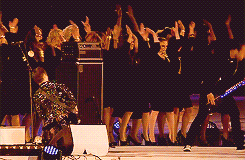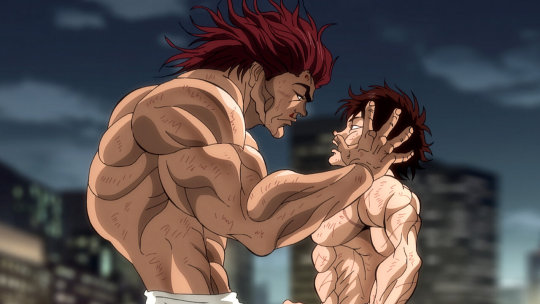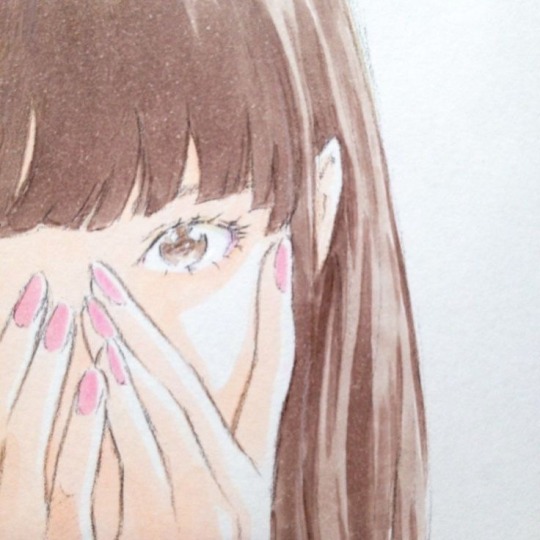#Global Pageantry
Explore tagged Tumblr posts
Text
youtube
#the crown aura#Miss World Candidates#Global Pageantry#Miss World 2025 Delegates#Miss World 2025 Favorites#Miss World Updates#Miss World Highlights#Global Beauty Queens#Miss World Top Picks#Road to Miss World 2025#Miss World Favorites#Miss World Hot Picks 2025#Top Miss World Contestants#Beauty Pageant 2025#Miss World 2025#Miss World Predictions#Top Beauty Queens 2025#Miss World Competitors#Miss World Finalists#Beauty with a Purpose#miss world#miss mundo#missolatino#missosology#miss universe indonesia#miss universe mexico 2024 preliminar#miss universe 2024#hector cermeño#miss universe venezuela#มิสยูนิเวิร์สไทยแลนด์ 2024
0 notes
Text
You know, I could see a real advantage in the knowledge rin and potentially kabru have of flamela. Because I actually wish I had put this in my World Map Notes but Heimeya is in her mid 300s and elves only live to about 500 - the Northern Central Continent is coming up on a regime change and with Flamela's twin dead, she's the most likely heir. And she no longer has pressing military duties to use to keep away from the role, with the canaries no longer nearly as urgent (and thus prestigious). Rin knows Flamela from when she was taken by her unit of canaries, though I have no idea how much that knowledge amounts to. I'd imagine Kabru is definitely aware of her circumstances at least- that's prime elven noble gossip and he grew up at least adjacent to both those circles and the canaries, who she is an important member of. They might not be quite young enough to be around still when the regime change happens, but theyll certainly want to prime their successor for what to expect. Personally I'd be nervous. - I like Flamela, she's cool, but she's an elven noble who displays the usual prejudices for her position, treated rin like seized livestock, and has attained most accolades and spent most of her life in military service. It's most logical to want to secure her throne by reestablishing their global influence and reclaiming lost territory. If they are lucky then her close proximity to the near end of the world that laios averted will earn some caution/respect for melini, but it will depend whether that extends to his successor- that's why I think the most effective choice would be to pretend to have more control over the monster effect, and maintain the fiction that it's inherited and so the throne can't be seized from laios' heirs. Either that or attach a choice of successors with some pageantry to pretend to be passing the effects on, but that's going to be less convincing to people who are used to direct blood inheritance of the mandate to rule, and especially to elves who know more about how magic works.
58 notes
·
View notes
Text
Since taking office, U.S. President Donald Trump has pulled the United States out of the Paris Agreement, paused wind farm leasing on U.S. public lands and offshore waters, and defiantly declared that “we will drill, baby, drill” for oil and gas to achieve energy dominance. In response, climate policy advocates have wasted no time in proclaiming China to be the world’s last best hope for climate action.
“Insofar as there is to be a global climate leader it can now only be China,” wrote economist Adam Tooze. A Chinese climate policy analyst speculated in a Straits Times interview whether this moment might mark structural Western decline in the “climate space” and the rise of “alternative voices.” Bloomberg journalists contrasted Trump’s return against China’s record-breaking solar and wind build-outs, arguing that China could be poised to upstage the United States by assuming global climate leadership. Recent newsletters from Carbon Brief overflow with positive headlines about China’s energy transition efforts while reporting grimly on the Trump-led shift on climate policy.
While the United States now makes for an even more convenient climate pariah than usual, framing Washington as the villain and Beijing as the climate savior ignores the facts of China’s energy use and trajectory. More importantly, selectively framing the debate this way also deflects attention from Beijing’s own emissions, particularly in the coal power and industrial sectors.
As the U.S. withdrawal from the Paris climate agreement fundamentally challenges the usefulness of climate summits and pledges, praise for China’s alleged climate progress validates charges that the climate policy circuit exists only for performative promises and symbolic pageantry.
There is a stark dichotomy between applause for Beijing’s climate rhetoric and the reality of China’s emissions trajectory. Since China signed the Paris Agreement in 2015, it has accounted for 90 percent of all global growth in carbon emissions. China now produces more than 30 percent of the world’s carbon dioxide from fossil fuels. China’s greenhouse gas emissions are more than twice the United States’ and more than four times India’s or the European Union’s.
Five years have passed since Chinese President Xi Jinping’s landmark pledge to achieve net-zero carbon emissions by 2060, but there is little evidence to suggest that the country’s energy system and policies are moving in the right direction. China will very likely miss its 2025 carbon-intensity pledge—an 18 percent reduction in carbon emissions per unit of economic output compared to 2020 levels—along with all of its other 2025 pledges related to limiting coal use and expanding clean power. And far from making good on a widely celebrated 2021 promise to phase out international financing of coal projects, China remains, by far, the leading financier of overseas coal power capacity. At home, Chinese planners started construction of 94.5 gigawatts of coal power generation in 2024 alone, roughly equal to the power generated by the entire U.S. nuclear power sector.
China’s emissions trajectory illustrates the limitations of the most venerated global climate pledge of all: limiting warming to 1.5 degrees Celsius (or about 2.7 degrees Fahrenheit) above preindustrial levels by the end of the century. Even if China’s carbon emissions peaked this year and then plummeted linearly to zero by 2060, China alone would consume the entire world’s remaining carbon budget for a 66 percent chance of achieving the 1.5 degree goal.
Commentators and activists demanding muscular climate policies from the West usually look away when others point an accusatory finger at China. But a Chinese climate analyst writing in the Financial Times effectively conceded that an emissions pathway that avoids breaching the 1.5 degree Celsius target would require an unlikely “crash decarbonization” by China.
Planners and thinkers need to accept that the 1.5 degree goal is now irreconcilable with reality—no matter how much they imagine that Chinese technological and construction magic might save the day.
Some might counter that while the 1.5 degree target may have slipped away, Beijing nonetheless has a real chance of executing an about-face and leading the world in fast-paced decarbonization. Certainly, China is building solar, wind, battery, and nuclear energy facilities at a blinding pace, installing nearly 100 gigawatts more solar capacity in the first half of 2024 than the rest of the world combined. More than 80 percent of the world’s solar cell manufacturing takes place in Chinese factories. This year, sales of electric vehicles in the country will likely exceed those of combustion-engine cars. And Beijing can build on these successes by helping other countries, particularly low- and middle-income states, develop renewable power projects. Indeed, Chinese solar exports are on the rise.
But none of these numbers can change the bigger picture. Since 2011, China has consistently consumed more coal than the rest of the world combined; last year, coal use likely hit another record high. China’s clean electricity additions may be impressive, but they are only now beginning to match growth in overall energy demand, which means that fossil fuel energy consumption is—at best—only plateauing, without any of it yet being displaced. Meanwhile, an uptick in curtailed and otherwise wasted renewable generation suggests that a further build-out of renewables is increasingly constrained by grid infrastructure and market inflexibility.
China’s vast industrial sector—often glossed over in climate discussions—accounts for around 60 percent to 70 percent of the country’s emissions. Industry currently depends on fossil fuels to smelt ores, fire up furnaces, and serve as the feedstock from which various products are made. The Chinese aluminum sector alone produces roughly as much carbon dioxide as the entire country of Indonesia. China’s chemical, steel, metal, and minerals industries together exceed the total emissions of the entire United States. Next to such figures, the strident demands by various activists and advocacy groups for climate commitments from sub-Saharan African nations with negligible emissions appear even more absurd.
Some of China’s policies, including its lack of ambition to electrify heavy industry, actually hold back global decarbonization efforts. Cleaner means of producing steel, nickel, graphite, or ubiquitous chemicals such as calcium carbide and sodium hydroxide face fierce competition from highly polluting but low-cost Chinese producers that enjoy generous government support.
China has proposed and imposed export controls on key technologies required to manufacture solar panels, batteries, and other clean technology. Beijing may be keen to sell electric cars and solar equipment at home and abroad, but it is clearly not giving these technologies to the world.
If anything, the Chinese example does not buoy hopes that a developing country can both build a heavy industrial base and mitigate emissions. Meanwhile, activists and international policymakers have expressed concern over the entanglement of China’s solar, battery, and electric car industries with state-sponsored forced labor programs in the province of Xinjiang. Such objectionable policies have now forced many governments and firms into difficult quandaries over the ethical sourcing of solar panels and other clean technology.
And far from making good on the 2021 promise to phase out international financing of coal projects, state-owned banks and financial institutions such as the China Development Bank and the Export-Import Bank of China continue to play a central role in funding coal-fired projects. Through its Belt and Road Initiative, China has extended its financial influence globally by providing loans and investments specifically earmarked for energy infrastructure, including coal. These investments often come with attractive financing terms that make them appealing to governments with limited access to capital. China’s stated climate ambitions thus stand in sharp contrast to its overseas financing of coal plants.
To this day, China has duly ratified global climate treaties, consistently attended climate summits, and contributed some funds to global climate finance mechanisms. But when it comes to the key metric of emissions, U.S. and EU numbers are decreasing, while China’s have not yet peaked. Distaste for Trump’s climate policies must not mislead commentators into mistaking Chinese decarbonization dreams for real-world deeds.
A more serious debate about the global energy transition must grapple with what Beijing is still not doing instead of just cheering at China’s solar and electric car milestones. Climate commentary about the country must grow beyond getting excited when a communique of the Chinese Communist Party’s Central Committee mentions the words “carbon reduction” for the first time.
And rather than asking softball questions about whether Beijing remains committed to climate action despite Trump’s uncooperativeness, perhaps commentators should repeatedly ask when the government will cease its efforts to subsidize heavy industry in the most carbon-intensive manner imaginable. They should question whether China messages its climate progress as a means to influence U.S. and European behavior, or if Beijing has instead received concessions from Washington or Brussels by offering unenforceable climate promises.
Most of all, the climate policy circuit must open its eyes to the reality that Chinese policymakers follow a “China First” geopolitical strategy that is at least as relentless as Trump’s “America First” posture. Official spokespeople insist that China is still a developing country with a lower obligation to cut emissions or contribute toward climate finance, while Chinese climate negotiators’ stress that climate cooperation is conditional on efforts to improve relations in other areas to Beijing’s satisfaction—a policy linkage that is entirely at odds with the widespread Western view of climate as a challenge above all others.
And if climate activists still doubt that Beijing’s real intentions diverge from its cooperative rhetoric, they need look no further than Russian troops riding across Ukraine in Chinese-made Desertcross all-terrain vehicles, supported by Chinese drones, and funded by Chinese purchases of Russian oil and gas.
Behind all the promises and signaling, the numbers don’t lie: China is not going to drive a rapid transition away from fossil fuels at home or abroad. It may well be the case that what is happening in China is simply what is happening everywhere else: slow, long-term decarbonization. In other words, China will be using fossil fuels for a long time, even as it makes progress on clean energy and low carbon technology.
If climate advocates are now giving up hope that Trump’s United States might supply their Hollywood climate ending, then they will find little solace in turning expectantly toward China.
6 notes
·
View notes
Text
I keep thinking back to Muse playing Survival at the closing ceremonies of the 2012 London Olympics, and I keep saying that one of these days I'm just gonna spew all my feelings about how it's not just one of my all-time favorite Muse moments, but also a hilarious, if perhaps unintentional, moment of social commentary.

I still remember our postgrad professor showing those same closing ceremonies in class, explaining the not-so-subtle propagandistic purpose the entire spectacle served on the global stage. (For those who don't know, the 2012 Olympics closing ceremonies were essentially a three-hour star-studded tribute to UK music and pop culture.)
Picture this: you just sat through about two hours of the UK's various national exports - One Direction, the Spice Girls, the Pet Shop Boys, George Michael, Ed Sheeran, Annie Lennox, erm, Russell Brand. You've just seen live performances of Bohemian Rhapsody, Imagine, Wonderwall, and Always Look on the Bright Side of Life, alongside tributes to David Bowie and Freddie Mercury. And you still have Queen, Take That and The Who to go after this.
youtube
Interestingly, that class glossed over what an afterthought the Muse performance felt like by comparison. You could argue a lot of extenuating circumstances: the controversial reception of Survival as the official London Olympics theme song, the infamous NBC debacle where it inadvertently got cut from the US broadcast of the ceremonies, or the simple fact that this far into the festivities, a fairly straightforward stage performance* by a band with slightly less name recognition than Coldplay was pretty underwhelming.
* Not sure if this is common knowledge, but apparently this performance was mostly playback with the exception of Matt's vocals. Which also makes this an underappreciated entry in the annals of Muse miming shenanigans.
youtube
But something becomes very apparent once you actually reach this part of the show: Survival is fucking bananas. I'll never forget that one internet commenter calling it the world's most epic villain song that doesn't know it's a villain song. I mean, just look at the lyrics:
Life's a race / and I am gonna win
And I'll light the fuse / and I'll never lose
And I choose to survive / whatever it takes
You won't pull ahead / I'll keep up the pace
And I'll reveal my strength / to the whole human race
This is how the song starts! You can sort of see the logic behind making it the Olympics theme song. And then it gets weirder from there:
Yes, I am prepared / to stay alive
I won't forgive / the vengeance is mine
And I won't give in / because I choose to thrive
Yeah, I'm gonna wiiiiiiiiiiiiiiiiiiiiiiiiiiiin
Good grief. No wonder it's called "Survival". The song makes slightly more sense in the thematic context of The 2nd Law, the album it was released on. But on its own it's just.... yeah.
And this performance ramps up the insanity even more by just taking the piss. Between Matt Bellamy peacocking in a sparkly suit and Union Jack t-shirt, the batshit guitar solo, the pyro, the backing choir, and the fact that everything onstage (including the grand piano) is pretty much just for show (and wobbling like mad), Survival feels cheesy and irreverent in a way that makes you suddenly hyper-conscious of how tightly orchestrated everything else you just saw (including the Monty Python and Mr. Bean stuff) was. Remember that this was all broadcast to an international audience of millions.

Pairing the sheer pageantry of the ceremonies thus far with the actual lyrics of Survival kinda puts everything in an uncomfortable new light. Then it dawns on you that you pretty much just watched an accidental three-hour love letter to British imperialism. (Okay maybe that's overselling it a bit but it's still pretty funny.)
#muse#muse band#survival#the 2nd law#matt bellamy#olympics#P.S. I can't help but wonder how Dom and Chris feel being accomplices to all this
32 notes
·
View notes
Text
Miss Prettiest Girl International
Miss Prettiest Girl International 2025 Takes Center Stage in Abuja, Nigeria
Miss Prettiest Girl International was born from the success of Miss Prettiest Girl Nigeria, because if we can have a Miss Prettiest Girl Nigeria, why not take it to the world?
This groundbreaking event is making history as the first of its kind, celebrating beauty, elegance, and global unity on an international stage. Hosted in the vibrant city of Abuja, Nigeria, this prestigious competition will bring together contestants from around the world, showcasing not just their stunning beauty but also their intelligence, culture, and charisma.
Save the date! From November 26th to December 6th, 2025, get ready for a spectacle of glamour, inspiration, and cultural diversity like never before!
Are you ready to be crowned the ultimate queen? Yes, YOU! The crown awaits
The Prestige of Miss Prettiest Girl International
The Miss Prettiest Girl International pageant is more than just a beauty competition, it’s a global stage dedicated to empowering young women, fostering cultural exchange, and showcasing meaningful social initiatives. Contestants are judged not only on their looks but also on their intelligence, talent, and ability to drive positive change. After all, true beauty goes beyond appearances, it’s about character, purpose, and impact. With participants from over 100 countries, this one-of-a-kind event is set to redefine international pageantry. Get ready for an unforgettable experience like never before, we’re about to take you on an extraordinary journey.
Why Abuja, Nigeria?
Hosting the 2025 edition in Abuja, Nigeria, is a strategic and exciting choice. As the capital city of Africa’s most populous nation, Abuja is known for its stunning landscapes, modern infrastructure, and warm hospitality. Nigeria, with its rich cultural heritage, vibrant entertainment industry, and thriving tourism sector, provides the perfect backdrop for an event of this magnitude.
A Glimpse of Abuja’s Attractions
Abuja, the vibrant capital city of Nigeria, is a breathtaking destination where both visitors and contestants will have the chance to explore its stunning landmarks. From natural wonders to cultural gems, Abuja offers a perfect blend of beauty, history, and leisure.
Here are some must-visit attractions:
✅ Aso Rock – A magnificent rock formation offering stunning panoramic views. ✅ Zuma Rock – Often called Nigeria’s “Gateway to Abuja,” this iconic monolith is rich in history. ✅ Millennium Park – A serene escape, perfect for relaxation and nature lovers. ✅ Jabi Lake – A picturesque waterfront ideal for leisure, picnics, and boat rides. ✅ Arts and Crafts Village – A vibrant hub showcasing Nigeria’s diverse artistic and cultural heritage. ✅ Usuma Dam – A peaceful retreat surrounded by nature’s beauty. ✅ Jabi Boat Club – The go-to spot for fun water activities and a lively atmosphere.
…and many more stunning tourist attractions waiting to be explored.
Abuja isn’t just a host city, it’s an experience.
What to Expect at Miss Prettiest Girl International 2025
This year which is the first ever edition promises to a glamorous affair. Here’s what attendees and viewers can look forward to:
1. Themed Preliminary Rounds
Contestants will participate in multiple rounds, including:
National Costume Presentation
Talent Showcase
Evening Gown Competition
Personality and Intelligence Q&A
2. Celebrity Guests and Performances
The event will feature performances by top Nigerian and international artists, ensuring an electrifying atmosphere filled with music, dance, and entertainment.
3. Social Impact and Humanitarian Initiatives
A key aspect of the competition is its emphasis on social responsibility. Contestants will engage in charity projects, visiting orphanages, schools, and community centers to promote initiatives that empower underprivileged groups.
4. The Grand Finale
The final night will see contestants walk the prestigious runway, answering thought-provoking questions before the crowning moment when one lucky lady will be named Miss Prettiest Girl International 2025.
The Impact of the Pageant
Hosting this competition in Nigeria is a significant boost to the country’s tourism and hospitality sector. The event is expected to attract thousands of visitors, providing a surge in economic activity for local businesses, hotels, restaurants, and cultural institutions. Additionally, it serves as an opportunity for Nigeria to showcase its beauty, hospitality, and capabilities on a global stage.
How to Get Involved
For those interested in being part of the Miss Prettiest Girl International 2025, there are various ways to participate:
Aspiring Contestants: Young women from different countries can apply through national pageant organizations.
Sponsors & Partners: Brands and companies can support the event through sponsorship deals.
Audience & Fans: Tickets for live shows will be available, and global audiences can tune in via television and streaming platforms.
Conclusion
The Miss Prettiest Girl International 2025 is set to be an unforgettable experience, blending beauty, culture, and purpose. With Abuja, Nigeria, as the host city, this event is poised to leave a lasting impact on the global pageantry scene. Whether you’re a contestant, a fan, or a visitor, this is an event you won’t want to miss.

3 notes
·
View notes
Text
Immaturity and Impunity: Performative Masculinity in Baki the Grappler

Content warning: discussion of domestic violence, sexual assault, drug use, and toxic masculinity
Spoilers for Baki Hanma
Although Baki the Grappler is over thirty years old, the franchise has seen a global resurgence thanks to a fresh take as an ONA series hosted on Netflix. This was my gateway into the wider world of Baki, a charmingly ridiculous realm that, previously, I had only glimpsed through DVD ads, internet memes, and the occasional offhand recommendation if I were ever in the mood for something mindlessly violent (which, for what it’s worth, I’m usually not). But despite its enthusiastic embrace of playful exaggeration and dramatic pageantry, Baki the Grappler shouldn’t be written off as mind-numbing entertainment for the masses. A critical analysis of Baki as contemporary anime, and a part of pop culture more broadly speaking, can help us all better understand how performative masculinity functions—and why it is so potentially dangerous.
Itagaki’s long-running manga series has been adapted numerous times. These releases have taken many different forms, including an OVA, a television series, and various video games. For my purposes, I’m focusing on Baki (2018–2020) and its continuation Baki Hanma (2021–2023) in order to analyze depictions of masculinity in Itagaki’s original work while contextualizing them within current sociopolitical climates.
By way of a rocky relationship between an unrelenting father and an indomitable son, Baki posits that, unfortunately, we live in a world where might often does make right, be it morally, politically, or legally defined. When such culturally defined notions combine with socially enforced concepts of manliness, the results can be as problematic as they are potent. As much as I thoroughly enjoy TMS Entertainment’s animated rendition of Itagaki’s creation, I recognize how it can perpetuate harmful stereotypes, hurtful habits, and generally unhealthful lifestyles while also promoting discipline, perseverance, and self-reliance in equal measure.
Read it at Anime Feminist!
15 notes
·
View notes
Text
Indigenous women are showing us how to fight for environmental and human rights
During a recent trip to Brazil, I saw how Indigenous women activists there have completely changed the political landscape

I was invited to the third Indigenous Women’s March in Brasília, the capital of Brazil, earlier this month. The last occupation of Brazil’s legislature was in January 2022, when a group of rightwing thugs, imitating the January 6 riot in the US, attempted to kill Brazilian democracy. This was the exact opposite.
Five hundred Indigenous women from across Brazil occupied the Congress – not with guns or knives or anger, but with the strength and truth of their words, the intensity of their knowing, with their headdresses, feathers and beaded primordial designs calling us to the earth, to know the earth, to protect and respect the biomes and honor Indigenous women’s rights to their lands.
There, in a space dominated by conservative white men in suits, deep in the business of mining, timber, agro-business and evangelizing – Indigenous women, once only a few, pepper-sprayed and excluded – now had their sisters as they walked through the front door with a sense of belonging, pride, pageantry and urgency. They opened with their version of the national anthem, sung by Djuena Tikuna in her Indigenous language. Those who suffered the “violence of absence” for years were suddenly undeniably present.
It hasn’t even been a year since two Indigenous leaders, Sônia Guajajara and Célia Xakriabá, were elected to Congress in Brazil. (Guajajara was later appointed minister of Indigenous peoples.) In their very short time in power – through brilliant organizing to claim demarcation of Indigenous lands, unapologetic assertion of their Indigenous culture, and mobilizing thousands of Indigenous women throughout the country, they have already shifted the policies and political landscape of Brazil.
Guajajara told me, “Many people are saying that Brasília is now breathing new air, that you can already see many cocares [headdresses] and wraps of black women within government spaces on the streets of Brasília, and we are present in all environments. So, it is certainly not just a physical presence, but also a different energy that we bring to this place, which is the energy of ancestral strength.”
What I experienced during my recent time in Brazil was nothing less than a radical re-imagining of the country’s future, but it also felt like the beginning of what many Indigenous women there are calling for – a much broader and more global agenda, a “reforesting” of politics and the mind. Before I had not been terribly hopeful; I am now.
Here are four reasons why.
Continue reading.
#brazil#politics#indigenous rights#environmental justice#feminism#brazilian politics#mod nise da silveira#image description in alt
20 notes
·
View notes
Text
Miss Prettiest Girl Nigeria
Miss Prettiest Girl Nigeria (MPGN): A Celebration of Beauty, Brain, and Education (QueensHood Redefined) Beauty pageants have always been a captivating spectacle, showcasing the grace, elegance, and intelligence of women from all walks of life. One pageant, however, stands out for its unique blend of glamour and purpose, Miss Prettiest Girl Nigeria (MPGN). Far from being just another beauty contest, Miss Prettiest Girl Nigeria (MPGN) is an international beauty pageant that has redefined what it means to wear the crown.
Organized by FowWorld Company, Miss Prettiest Girl Nigeria (MPGN) is much more than a competition for physical beauty. It serves as a global platform where beauty meets brain, all with a singular aim: promoting and supporting global children's education. In this article, we’ll dive deep into the story of Miss Prettiest Girl Nigeria (MPGN), its mission, the history of beauty pageants, and how aspiring contestants can shine on the world stage.
What is Miss Prettiest Girl Nigeria? Miss Prettiest Girl Nigeria, often abbreviated as MPGN, is an annual international beauty pageant that searches for the most beautiful and talented young woman in Nigeria. The pageant is run by FowWorld Company, a global corporation founded in 1999 by Hon. Nwabueze Buchi George. Known for its diverse business interests in finance, logistics, real estate, and more, FowWorld’s foray into show business, especially in the beauty pageant industry, is an effort to give back to the public, particularly through its support for global children's education.
Founded by George, who is also a United Nations Ambassador and a passionate advocate for fashion and pageantry, MPGN aims to showcase not only physical beauty but also intelligence, personality, and the ability to use one’s platform for the greater good.
The Mission Behind MPGN At the heart of Miss Prettiest Girl Nigeria (MPGN) lies a mission far grander than just a beauty contest. The pageant focuses on Beauty with Brains, aiming to create a positive impact on the world, especially in developing nations. The central goal of the competition is to give children access to global quality education. In a world where millions of children still lack access to basic education, Miss Prettiest Girl Nigeria (MPGN) founders are determined to make a difference by using the pageant as a powerful vehicle for social change.
Winners of Miss Prettiest Girl Nigeria (MPGN) are not just crowned as queens of beauty; they are also expected to use their status to raise awareness and mobilize support for educational initiatives, both in Nigeria and around the globe. Each winner adopts a pet project, usually centered around issues that matter to them, particularly education for children in developing countries. These pet projects serve as platforms for the queens to advocate for policy changes, raise funds, and create lasting impacts in their communities and beyond.
The Role of the Winner Unlike traditional beauty pageants where the crown simply symbolizes beauty, the title of Miss Prettiest Girl Nigeria (MPGN) comes with a significant responsibility. The winner is expected to be an ambassador for global education, promoting the importance of education for every child, regardless of their background or geographical location.
Throughout their reign, Miss Prettiest Girl Nigeria (MPGN) queens are highly involved with NGOs and other organizations, helping to spearhead awareness campaigns, organize charity events, and speak out on issues affecting children worldwide. The queen’s platform extends far beyond beauty and elegance; it becomes a tool for social change.
A Step into International Competitions Another unique feature of Miss Prettiest Girl Nigeria (MPGN) is the opportunity for the winner to represent Nigeria on the global stage. The winner competes in international beauty pageants, showcasing Nigerian talent and beauty to the world. This global exposure is not just for personal fame; it serves to highlight important issues like children’s education, cultural diversity, and the power of women in leadership.
As a participant in international competitions, the Miss Prettiest Girl Nigeria (MPGN)titleholder carries the nation’s pride and purpose to different countries, all while championing causes that are integral to the development of children around the world.
A Glimpse into the History of Beauty Pageants To truly appreciate the significance of Miss Prettiest Girl Nigeria (MPGN), it’s important to look at the broader history of beauty pageants and their evolution. Beauty pageants have been a part of human culture for centuries, but the modern beauty contest that we recognize today has its roots in the early 20th century.
The first modern beauty pageant, held by P.T. Barnum in 1854, was met with public backlash and eventually shut down. Barnum, known for his eccentricity, had previously staged dog, baby, and bird beauty contests as part of his circus shows. However, the concept of competitive beauty eventually gained traction.
The Miss America pageant, established in 1921 in Atlantic City, is considered the first major modern beauty contest. It was initially known as the "Inter-City Beauty Contest," and since then, beauty pageants have expanded globally, with many countries hosting their own local or national events. Despite their growing popularity, the fundamental purpose of these pageants has largely remained the same: to celebrate beauty, talent, and achievement.
The Principles of Winning a Beauty Pageant Winning a beauty pageant, whether local or international, requires more than just a pretty face. It takes a combination of several qualities that judges and the audience alike appreciate. Here are some of the essential principles that every contestant must master:
Confidence and Poise: A true beauty queen walks into the room with her head held high, radiating self-assurance. Poise is key, whether you’re answering tough questions or strutting down the runway.
Intelligence: In today's pageants, judges are looking for women who can think on their feet. The modern pageant is about beauty and brains, contestants must demonstrate the ability to discuss global issues intelligently and articulately.
Personality: Beyond looks, personality plays a critical role. Charisma, kindness, and charm are essential traits that make contestants stand out. Beauty queens should be approachable and empathetic, especially when supporting causes like children’s education.
Passion for a Cause: MPGN contestants, like many other beauty queens, are expected to have a deep passion for a cause. Whether it's education, women’s empowerment, or environmental issues, a beauty queen should be committed to making the world a better place.
Physical Beauty: While this is often the initial focus, beauty pageants have evolved to emphasize holistic beauty. A healthy lifestyle, grooming, and overall appearance matter, but inner beauty is just as important.
Miss Prettiest Girl Nigeria (MPGN): Queenshood Redefined Miss Prettiest Girl Nigeria is not just about competing for a crown, it’s about redefining what it means to be a queen. The title of queen is not just an ornament to wear; it is a role that comes with the power to make meaningful contributions to society. MPGN has created a platform where beauty, brains, and a commitment to global causes converge. The pageant celebrates the totality of a woman’s beauty, from her intellect and personality to her dedication to social impact.
By combining the glamour of beauty pageantry with the noble cause of education, Miss Prettiest Girl Nigeria (MPGN) sets itself apart as a pageant that truly makes a difference. The contestants aren’t just competing for the title of “Prettiest Girl”; they are striving to become global ambassadors for education and change. Their beauty and intelligence are their tools to advocate for children everywhere, ensuring a brighter future for all.
Conclusion Miss Prettiest Girl Nigeria (MPGN)is much more than a beauty pageant. It is a celebration of what it means to be a modern queen, a woman who is beautiful both inside and out, who is intellectually gifted, and who uses her voice to advocate for children’s education worldwide. Through its international platform, Miss Prettiest Girl Nigeria (MPGN) offers contestants an opportunity to showcase their beauty and brains on a global stage, all while making a lasting impact on the world’s most pressing issue: the education of every child.
In the world of beauty pageants, Miss Prettiest Girl Nigeria (MPGN) is a beacon of hope and progress, Queenshood Redefined!
If you have any inquiries, feel free to email us at: [email protected]
Stay connected with us on social media!
Instagram: @prettiestgirl_25 X: @prettiestgirl25 Pinterest: https://www.pinterest.com/nigeriamissprettiestgirl/ Threads: @prettiestgirl_25 TikTok: @missprettiestgirlnigeria Follow us for the latest updates and exciting content!

2 notes
·
View notes
Text
putting aside the fact that the united states has interfered with more elections than any other nation that has ever existed, it's also odd to insist that the only logical reasons one would have to become disillusioned with the cyclical nature of electoral theater or the united states empire itself, is because of the influence of some foreign-created bots and not, say, living with the misery caused by the policies that the state itself imposes.
the people we're talking about here are subjected to all sorts of violations, from militarized police preventing access to goods and basic services, the disastrous effects of climate change, the constant turbulence of the economy making life unaffordable, the omnipresent stigmatization and scapegoating of homeless populations, sex workers, immigrants and felons (particularly those of color) for "crime", and so on...
...but it isn't because all of these things have been directly caused by or gone ignored by politicians and their corporate puppet masters, and that people are smart enough to realize that this flow of power from the top down won't change simply because we vote once every 4 years, oh no. it's simply the result of some shadowy hacker infecting the minds of impressionable people with anti-american propaganda with memes to weaken our patriotic resolve. they've broken through the conditioning we've experienced through at birth and surrounds us constantly by posting in the comments of a facebook post or tiktok where everyone goes for their political education.
we shouldn't be ignorant to the fact that world powers do indeed regularly struggle for supremacy on the world stage and have been known to engage in highly secretive, elaborate plots to topple each other, so this much is obviously true. however, the assertion that every criticism or conflict of interest and values can be reduced to being the product of outside agitation, that the people making a fuss have all had their brains washed is absurd and disgustingly offensive if not evidence of motives equally as shady as that of the alleged infiltrators themselves. it's likewise totally dismissive of the historical work of radicals globally to build a revolutionary anti-authoritarian anti-imperialist consciousness and inspire action on that front.
in addition to competition, world powers also frequently collaborate as well in the form of trade, so they have a good reason to hesitate to do anything that would permanently disrupt the flow of capital much less endanger their very existence unless there's some kind of achievable goal worth the risks. the ruling classes of these nations are not self-destructive fools despite the pageantry and flair -- they are businessmen seeking to preserve their power and impose social relations understood as essential to making this process easy for them.
so, that might entail interfering with elections in various ways but it also entails making sure not too much is disrupted overall -- riots, mass liberatory movements and strikes are all bad for business.
if these bots were really so invested in the fall of the american empire then we'd have to contend with the fact that the logical conclusion of this concept would apply to not only this empire, but all of them, globally -- since it would be pointless to criticize the destructive nature of one nation while leaving the rest untouched as if they didn't/don't engage in similar activities or play a role in enabling it.
the double standard couldn't be more apparent. fear about an invisible enemy lurking in the dark corners of the internet attacking "us" through misinformation and bad vibes when this entire "democratic" system's existence was founded by lies, its leaders engaging in underhanded trickery and plunder on a grand scale, yet when its them and their supporters who become the targets, they cry wolf and start accusing everyone with something less than positive to say as being a secret spy for the kremlin, or something. fuck off with that.
3 notes
·
View notes
Text
LANCE RAYMUNDO BECOMES FIRST FILIPINO TO HOST MISS UNIVERSE INDIA | CAPTIVATES MILLIONS WITH CHARM AND STYLE

Rhea Singha| MISS UNIVERSE INDIA 2024
Rhea Singha| MISS UNIVERSE INDIA 2024MISS UNIVERSE INDIA 2024 CORONATION NIGHTwas held at Zee Studios in Jaipur, a spectacular showcase of talent, beauty, & empowerment. Among 51 finalists, Rhea Singha, a 19-year-old model from Gujarat, claimed the prestigious title of Miss Universe India 2024. Her charm, intelligence, and advocacy for social change, through her initiative Work Ready with Rhea, helped her secure the crown.
She will now represent India at the Miss Universe 2024 competition in Mexico on November 16, 2024.

RHEA SINGHA | MISS UNIVERSE INDIA 2024 & LANCE RAYMUNDO
ONE of the most notable aspects of the event was the historic debut of Filipino actor and celebrity host Lance Raymundo, who became the first Filipino to co-host the Miss Universe India pageant. Lance, known for his magnetic stage presence and deep experience in the entertainment industry, brought an international flair to the night. His seamless hosting skills, confidence, and charisma left a lasting impression on the audience. Lance’s presence at such a prestigious event marks an important moment in global pageantry, reflecting the growing inclusivity and cross-cultural connections in beauty competitions.
Ngo Ngoc Gia Han from Vietnam who won | Miss Teen International 2022, co-hosted the event alongside Lance. Her grace and poise perfectly complemented Lance's energy, making them a dynamic duo on stage. Together, they created an electric atmosphere, guiding the evening’s events with professionalism and style.

Adding to the glamour of the night was Urvashi Rautela, the only person in Indian history to win Miss Universe India twice. As a member of the jury, Urvashi, alongside Nikhil Anand, founder and chairman of the Glamanand Group, crowned the new queen, Rhea Singha. Under Anand's leadership, the Glamanand Group has redefined Indian pageantry by promoting diversity and empowerment, and this year's competition reflected that commitment.

URVASHI RAUTEL

NIKHIL ANAND
This grand event, broadcast live on YouTube, reached millions of viewers worldwide. With Rhea’s crowning and Lance’s remarkable debut as a host, the spotlight now turns to Miss Universe 2024, where India will shine on the global stage.
3 notes
·
View notes
Text
Inauguration of a Dictator and Remembrance of Aggression Victims
You're tuned into our special broadcast from the weekly rally at the Russian Embassy in Lisbon. Today is May 4, 2:30 PM.
This coming May 7 marks yet another inauguration of the illegitimate Russian President Vladimir Putin.
Under Putin’s regime, Russia has morphed into a de facto dictatorship, where fascist-style propaganda has cultivated a disturbing cult of personality. The regime's commitment to neo-imperialist ideologies has turned the concept of the “Russian World” into a tool for inciting wars. It’s declared a war on its own people, forcibly Russifying indigenous groups within Russia. Patriarch Kirill of the Russian Orthodox Church has escalated this rhetoric, branding the conflict against Ukraine and what he calls the “satanic” West a “holy war of all Russians,” with countries like Belarus, Iran, Cuba, North Korea, and Venezuela echoing this aggressive stance. These alarming developments were highlighted in PACE resolution No. 2540, adopted on April 17, 2024. https://pace.coe.int/en/files/33511/html
On the day of Putin's inauguration, activists from the global community Free Russians Global will hold a rally at The Hague, near the building of the International Court of Justice. Named PutInJail: Prison, not Kremlin, this event calls for justice, not pageantry. The rally is scheduled for 12:00 and you can learn more about this event at this link. https://www.facebook.com/events/1437417300212871/
Even if you cannot join in person, you can still support this cause from afar. Take a photo with relevant posters, share it on social media with the hashtag #PutInJail, and send it directly to the organizers via their dedicated Telegram bot at this link. https://t.me/send_protest_photo_bot
Just this May 2, the channel “To be honest” released a video where concerned Russian citizens from various cities gathered at the President's reception office. They submitted what they claim are thousands of signatures calling for the president's impeachment. A Google form linked in their video allows more signatures to be gathered, accessible here. https://www.youtube.com/watch?v=l06JihgB0hU
Looking ahead to May 12, at noon in Madrid, the Association of Free Russians of Spain together with the Anti-War Committee will hold an international march in memory of the victims of military aggression and political repression. This event coincides with the anniversary of the end of World War II, a victory whose credit the Putin regime has controversially claimed. The march also protests against the ideology of victory fanaticism and fascist symbols, highlighting how citizens from numerous countries become hostages to authoritarian regimes, with freedom fighters often falling victim to these oppressive rulers. Details of the march can be found here. https://www.facebook.com/events/s/marcha-internacional-por-las-v/964566638650917/
On May 8 and 9, the Russian association Demokrati-JA will gather in Berlin's Treptower Park to emphasize the fragility of the free and safe world Europeans currently enjoy, untouched by bombs and shelling. They warn that if Russian aggression in Ukraine is not halted today, war could be at our doorstep tomorrow. They stand firm against those who, in the coming days, will flock to war memorials, glorifying past battles without respect for the fallen. More information on this gathering can be found here. https://www.facebook.com/events/310860055369130/
Proofs and links are provided in the description. Subscribe and join the effort to make a difference.
3 notes
·
View notes
Text
DISSOCIATIVE IDENTITY DISORDER, Performance and Pageantry:
There’s a certain expectation that comes with being a system, our representation is few and far between and good representation is even rarer.

There’s a look, a sound, a feeling that is expected of systems. We’re meant to be monsters, completely inhospitable and disorderly. We’re supposed to forever be the child that in their eyes was destroyed, few understand that this was the brain’s way of preventing destruction.
We can’t have any sense of normalcy, or identity, or wholeness, because everyone, even subconsciously, views us as broken individuals that are solely defined by our traumas. We can’t take pride in our plurality, because then we are faking it. We have to perform, but we can’t perform too much because then we are acting.
If our alters are too different from us, they are not real. If they are too similar, then they still are not real. There’s no line we can tread that won’t result in fake claiming, there’s no escaping this idea that DID and the experiences of systems are not real. I have lurked in fake-claiming circles quite a bit and there’s no way for a system to gain respectability in their eyes, even those with diagnoses are accused of exaggerating their symptoms, as though showing the symptoms of your disorder somehow invalidates your experience.


They all say the same thing, even if phrased differently: Systems are a myth.


They talk about the rarity, yet never deny the existence of redheads and would never say that if 158 million people suddenly went missing there wouldn’t be global uproar, discord, panic, and fear. Our existence is simply too daunting for them to comprehend, yet we are expected to bridge the gaps in their understanding by being exactly what they need us to be.
Small, quiet, forgettable. They only can comprehend the broken child but can’t even begin to fathom the adult with complex traumas. The adult with self-awareness, the adult who can keep track of their lost time and who shows up differently for different people in their lives. They can understand and pity the child that is overwhelmed by the multitudes of plurality, but can not show empathy or extend understanding to the adult that wades the waters of the same experience.


I watched a debate about how alters aren’t really different people but rather splits in the same psyche, which is fine though it does oversimplify what that actually entails, but the most infuriating part was that people in that subreddit were trying to argue that as though it would be functionally different. Logically, I know I am a split of psyche, but I have my own memories, own preferences, own skills, which makes me functionally my own person. When cells undergo Mitosis there’s the parent cell and two identical daughter cells, yes they’re genetic copies, but you still have three distinct cells that increase the capacity of a cellular system. Systems and alters are even more complex and individual than that cycle, but we are not given the dignity of being our own persons?

#systemblr#traumagenic system#actually traumagenic#system things#did system#discussions of fake claiming#fake claiming cringe#dissociative identity disorder#actually did#ctrl-z#i don’t know being a system is hard#plurality#anti fakeclaiming#fuck fakeclaimers
4 notes
·
View notes
Text
It may sound like fun and games, but it’s no joke. After Russia’s full-scale invasion of Ukraine in February 2022, this decentralized group of activists came together to raise money for Ukraine and demolish Russian narratives on social media. They even have their own version of NATO’s Article 5 for mutual assistance, with the hashtag #NAFOArticle5, a cry for other fellas to pile in on social media posts. The fellas took a big step toward recognition last month by staging the NAFO summit in Vilnius. Estonian Prime Minister Kaja Kallas congratulated the group on its first summit and tweeted, “Behind every Fella is a real person who believes in #Ukraine’s victory.”
The world has changed markedly in the more than three decades since political scientist Joseph S. Nye Jr. popularized the term “soft power” in the pages of Foreign Policy. When that article was published in 1990, the dust had barely settled on the ruins of the Berlin Wall, most American homes didn’t have a personal computer, and the first internet meme of a dancing baby was still a few years in the future. The notion of government ministers attending a wartime summit and taking time to praise smack-talking cartoon dogs would have struck many political observers as far-fetched.
Although the modern vernacular of soft and hard power implies opposition, since the earliest civilizations it has been more of a continuum. In ancient times, Hellenization spread throughout the known world in the wake of Alexander the Great’s army. Proselytizing priests followed in the footsteps of Spain’s conquistadors. Imperial China presented a cultural wall against the steppe as powerful as any fortifications. The information age has modified the nature of soft power but not human nature. As Russia’s full-scale war in Ukraine grinds on and governments in West Africa fall to coups, it’s evident that no surfeit of wishful thinking will reduce the appeal of hard power for some.
Today, many world leaders still reach for sports, language, food, music, and movies to advance their interests. These efforts aren’t inherently more persuasive than bullets or blockades, but it’s a much more pleasant and humane way of seeking to influence world events. Occasionally, soft power seems to work like a charm. The United Kingdom is widely viewed as having benefited from the recent royal pageantry, despite it coinciding with some messy political infighting in London’s Parliament. India certainly benefits to some degree from the widespread popularity of yoga and Bollywood, but the country’s status as a rising Asian nation and counterweight to China explains much of its appeal in the West.
Increasingly, some political representatives are taking the extra, and risky, step of engaging directly with global popular culture. China’s ambassador to the United States, for example, recently tweeted, “An American friend asked me: what kind of flower will grow out of China?” A torrent of responses cast doubt on this anecdote and questioned whether the ambassador had any notion of how Americans actually speak.
Advancing soft power through pop culture may get more difficult as the internet evolves. The NAFO fellas, for example, generally organize themselves on Twitter, which has been a popular platform for social movements from the Arab Spring to Hong Kong’s Umbrella Movement. But Elon Musk’s rebranding of Twitter as “X” raises the question of whether the fellas will still be able to “tweet” and if anyone will notice if they do.
In a similar vein, Hollywood, which arguably did more in the 20th century to promote a beguiling image of the United States than the Marshall Plan or the Apollo program, is struggling with challenges at home and abroad. Labor strife casts doubts on new productions, artificial intelligence is encroaching, and competition from overseas is increasing. Content from Nigeria, Mexico, Germany, Japan, South Korea, and, of course, Bollywood is clamoring for the global attention span. Filmmaking can also backfire: Sony Pictures Entertainment suffered a major hack in 2014 that included threats to terrorize cinemas showing The Interview, a comedy about a plot to assassinate North Korea’s leader.
North Korea may be a touchy Hermit Kingdom. But South Korea’s K-pop, its brand of popular music, furnishes Seoul’s leaders with a deep well of soft power to draw from. In September 2021, when the United Nations opened the first fully in-person General Assembly in New York after lifting COVID-era restrictions, South Korea’s then-president, Moon Jae-in, invited the group BTS to sing and dance (and speak) their way through the U.N. headquarters as his special presidential envoys for future generations and culture. At the time, South Korea was riding high, having recently been catapulted into the top 10 largest economies in the world. Now, it has just been elected to the U.N. Security Council.
Sports and pop culture don’t have a monopoly on soft power. A little more than a decade ago, Russia was viewed favorably by nearly half of Americans. (Russia’s favorables have since dropped to single digits in the United States.) But with the possible exception of the dissident punk-rock band Pussy Riot, Russian pop culture was almost entirely unknown, then and now. Americans are more familiar with the cannons of Tchaikovsky’s 1812 Overture and the works of Dostoevsky and Tolstoy. Rudolf Nureyev and Mikhail Baryshnikov came to define classical dance; ironically, these Soviet defectors made ballet cool for a generation of Americans enrolled in classes during the Cold War. Only much later would some balletomanes understand that Nureyev self-identified as a Tatar and Baryshnikov as a Latvian.
Some government cultural campaigns are deliberately nostalgic. In 2020, Spain’s food ministry launched a campaign with the slogan El país más rico del mundo—which translates as either the “richest” or “tastiest” country in the world—plastering the motto on billboards in train stations and at bus stops. Centuries have passed since Spain had the world’s silver at its fingertips, but Spanish food and chefs are ubiquitous.
Language, and the pleasure of wordplay, is one of the most enduring aspects of a culture. Romance languages, a Roman legacy, flourished in medieval Europe. Many of the top-ranked countries in a recent survey of soft power subsidize global language schools, including Spain’s Cervantes Institute, Germany’s Goethe-Institut, China’s Confucius Institute, Italy’s Italian Cultural Institute, and the United Kingdom’s British Council. The guidepost has been France’s Alliance Française, which was founded independently by a circle of preeminent late 19th-century Parisians that included Jules Verne, Louis Pasteur, and Ferdinand de Lesseps, a French diplomat, developer of the Suez Canal, and leader of the plan to bring the Statue of Liberty to New York. French President Emmanuel Macron feted the 140th anniversary of the organization’s founding on July 21, remarking at a celebration at the Élysée presidential palace that the hundreds of schools scattered around the world, mostly underwritten by student fees, are “absolutely key for the diffusion of French culture but also of our values.”
Soft power may be pricey, but world leaders continue to pour money into a range of cultural offerings because they can’t be certain what will resonate. Last month, Macron and Indian Prime Minister Narendra Modi watched the Bastille Day parade in Paris, including a flyby of three French-made jets in the Indian Air Force. Modi’s visit concluded with an announcement that India would buy 26 more Dassault Rafale jets and three additional Scorpène-class submarines. This year, during a state visit to Beijing with plenty of cultural baggage, Macron sealed commercial deals for aircraft, cosmetics, financial products, and pork. Soon thereafter, a French television station called it a “jackpot” when the news broke that China had agreed to extend the stay of a pair of giant pandas at the ZooParc de Beauval in France’s Loire Valley. The zoo’s director had been among the entourage that had recently accompanied Macron to Beijing, which has a monopoly on pandas around the world.
Sports, especially hosting global events, can be an expensive and risky way to project soft power, and in some cases, countries have been accused of “sportswashing.” None of this is new. Adolf Hitler wanted the 1936 Berlin Olympics to showcase his Nazi regime; it showcased instead the superlative skills of Jesse Owens, the African American athlete who walked away with four gold medals. More recently, pro-Tibetan protesters stormed the field during an Olympic torch-lighting ceremony ahead of the 2008 Beijing Olympics. Last year, Qatar faced widespread criticism when it banned soccer fans from wearing rainbow gear into games because visible support for LGBTQ rights is prohibited in the socially conservative kingdom.
Currently, the thorniest debates center on the participation of Russian and Belarusian athletes and how to handle it when they face Ukrainian competitors, a headache that host countries probably had not envisioned when they bid for these events years ago. Some star Ukrainian athletes are refusing to shake hands with competitors from Russia or Belarus, which Moscow has used as a staging ground for its war in Ukraine. Some tennis fans, who may have thought they were witnessing poor sportsmanship, booed at the end of matches at Wimbledon and the French Open. Ukrainian fencer Olga Kharlan was disqualified after winning a world championship match in Milan for refusing to shake hands with her Russian opponent. She later posted a video on Instagram saying that what happened “raises a lot of questions.”
One question that hasn’t been answered is whether the fellas are making a real impact. Their social media messages have been so pointed, at least in part, because they echo the agitprop communication style developed by the Soviets to agitate nonbelievers and motivate the like-minded. But the fellas didn’t get their most cherished wish at NATO’s Vilnius summit, which ended without a major advance in Ukraine’s bid to join the security alliance.
The term “soft power” evokes more than wishful thinking, although that was certainly part of its appeal after the barbarism of the 20th century. Alongside other forms of persuasion, it can help a country cut trade deals, win friends, or join new clubs. Or not.
8 notes
·
View notes
Text
1. Belgian universities rise in World University Rankings
Both French- and Dutch-speaking universities have risen in the QS World University Rankings 2024, a ranking of the best universities worldwide. Read more.
2. The Ommegang brings renaissance splendour back to Brussels
The Ommegang of Brussels, recognised by UNESCO as Intangible Cultural Heritage, returns to Brussels on Wednesday, with all its magic and pageantry. Read more.
3. Antwerp’s diamond dilemma
A handful of streets in Antwerp are the global hub of the diamond business, but traders there see their status under threat. Read more.
4. Parts of European Quarter to be closed off during EU summit this week
A two-day European Council summit will be taking place in the Belgian capital later this week, which will result in parts of the European Quarter being shut off by police. Read more.
5. Foreign Minister to remain in office after reluctant support from government partners
The left-leaning parties in government (Ecolo, Groen, PS, and Vooruit) will vote to keep Hadja Lahbib (MR) in office as Foreign Affairs Minister, as the Federal Government looks to move on from the divisive Brussels Urban Summit that has marked Belgian politics of late. Read more.
6. Eurostar not on board for connection to Brussels Airport
Brussels Airport was looking to Eurostar to address its need for a high-speed connection to and from the airport, but the rail company has rejected the idea. Read more.
7. Hidden Belgium: One of the best hiking routes in Belgium
Marked out by volunteers in 1966, the GR 57 long-distance hiking trail runs through Wallonia for 265 km. Starting in Liege, it penetrates deep into the Ardennes, following the valley of the River Ourthe. Read more.
4 notes
·
View notes
Text
Gurdeepp Bawa

Meet Gurdeepp Bawa, Entrepreneur in Indian Fashion Industry
Gurdeepp Bawa, also known as Gurdeep, is a prominent figure in entrepreneurship and pageantry. He is the vice president and managing head of Missmrsinternational, a prestigious female pageant in India, and has gained recognition for his contributions to the industry. With a diverse business administration and management, Gurdeepp Bawa has made a name for himself as a successful entrepreneur and pageant consultant.
He was Born on August 25, 1996, in Ludhiana Punjab, India. Gurdeepp Bawa has always been passionate about business and leadership. He holds a Bachelors Degree in Business Administration. He pursued his education at renowned institutions like Chandigarh University.
As an entrepreneur, Gurdeepp Bawa has founded and managed multiple companies, including Global Act Productions , Firstalk Media, Groos Bell Cafe , Inspire Celebrity, Deigoo Models. he has been recognized with the Youngest Entrepreneur Award from the Business india in 2020 and the Businessman of the Year in 2021.
Gurdeepp's expertise in pageantry has made him a sought-after consultant in the field. His strategic planning and innovative approach have helped shape the success of Missmrsinternational, one of the most prestigious female pageants in India. His dedication to promoting talent and fostering growth in the pageant industry has earned him recognition as one of the best pageant directors.
Apart from his professional achievements, Gurdeepp Bawa is known for his philanthropic endeavors and social contributions. He has actively participated in charitable activities, supporting various causes and organizations. He is respected for his leadership skills, vision, and commitment to excellence.
2 notes
·
View notes
Text
Fuck the USA and fuck its pageantry of stage magic excuses for global murder.
the people voluntarily protecting its officers from the most basic kind of scrutiny are the same as any nazi. offering them more respect than you'd offer a nazi? is nazi shit.
quit looking for oranges at the hardware store.
American liberals aren't interested in fixing things for anyone. They're not being honest about their values. After three nonstop decades of this behavior, it's time to believe it: they really are just as racist and even more violent than their repub counterparts (if you count kills), they just operate on a larger & more industrially designed plan.
they're snide & evil. they're insulting and cruel. they're big into wielding the state as a weapon for backing up threats.
what more do you need to know?
liberals trying to do the "ignore all previous instructions" stuff on tumblr leftists is so corny like you really think people are writing leftist chatgpt bots on tumblr? what instruction set teaches chatgpt to understand marxism and make touhou shitposts. please explain this to me
8K notes
·
View notes